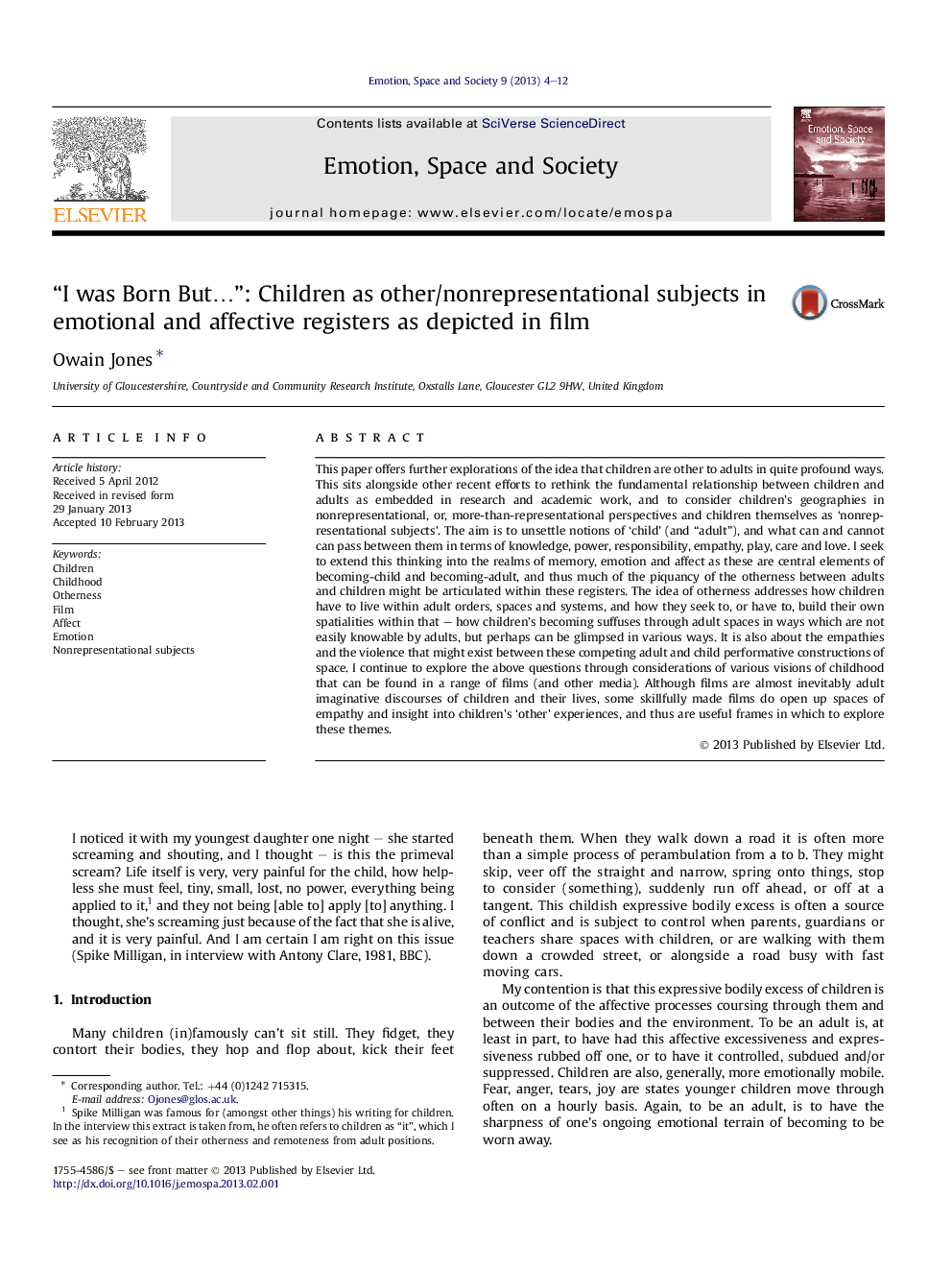| Article ID | Journal | Published Year | Pages | File Type |
|---|---|---|---|---|
| 7323408 | Emotion, Space and Society | 2013 | 9 Pages |
Abstract
This paper offers further explorations of the idea that children are other to adults in quite profound ways. This sits alongside other recent efforts to rethink the fundamental relationship between children and adults as embedded in research and academic work, and to consider children's geographies in nonrepresentational, or, more-than-representational perspectives and children themselves as 'nonrepresentational subjects'. The aim is to unsettle notions of 'child' (and “adult”), and what can and cannot can pass between them in terms of knowledge, power, responsibility, empathy, play, care and love. I seek to extend this thinking into the realms of memory, emotion and affect as these are central elements of becoming-child and becoming-adult, and thus much of the piquancy of the otherness between adults and children might be articulated within these registers. The idea of otherness addresses how children have to live within adult orders, spaces and systems, and how they seek to, or have to, build their own spatialities within that - how children's becoming suffuses through adult spaces in ways which are not easily knowable by adults, but perhaps can be glimpsed in various ways. It is also about the empathies and the violence that might exist between these competing adult and child performative constructions of space. I continue to explore the above questions through considerations of various visions of childhood that can be found in a range of films (and other media). Although films are almost inevitably adult imaginative discourses of children and their lives, some skillfully made films do open up spaces of empathy and insight into children's 'other' experiences, and thus are useful frames in which to explore these themes.
Related Topics
Social Sciences and Humanities
Psychology
Social Psychology
Authors
Owain Jones,
